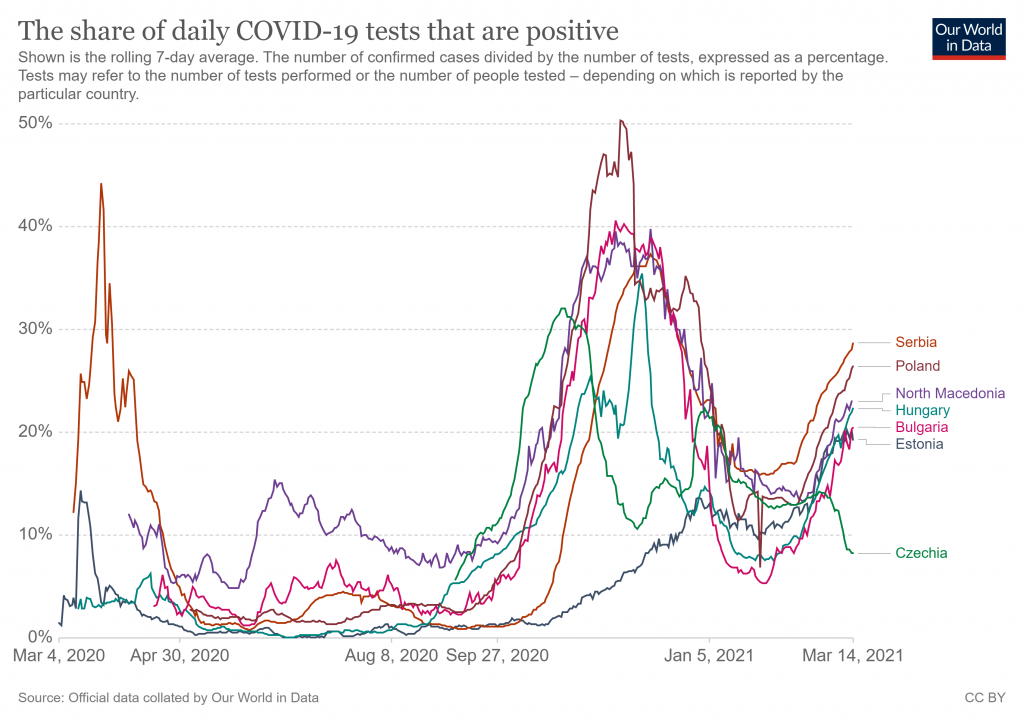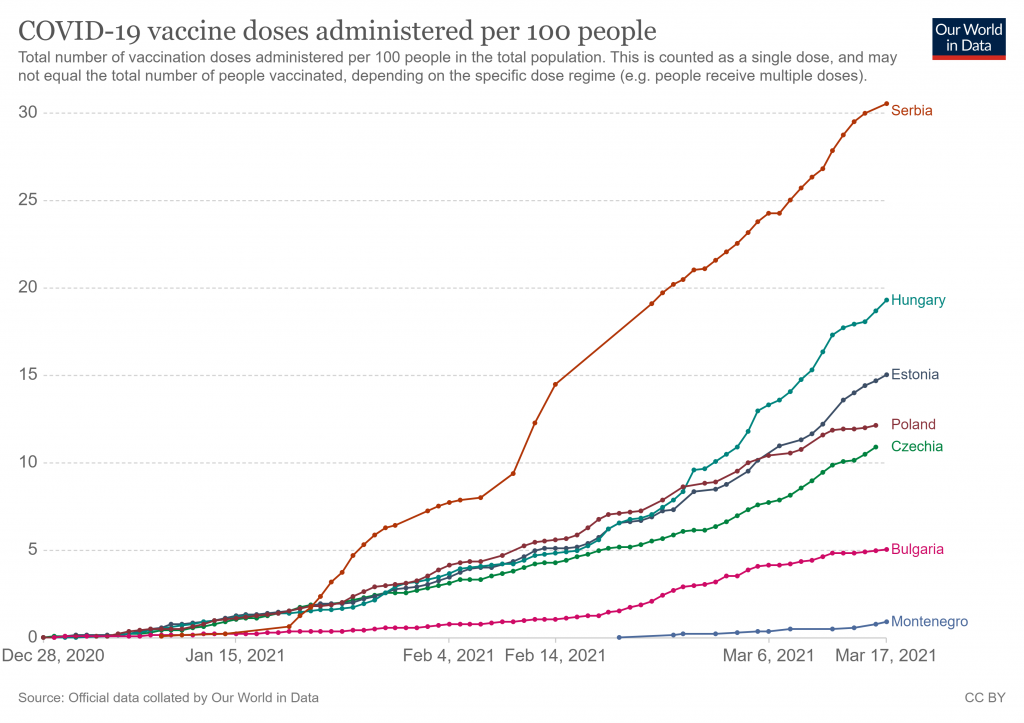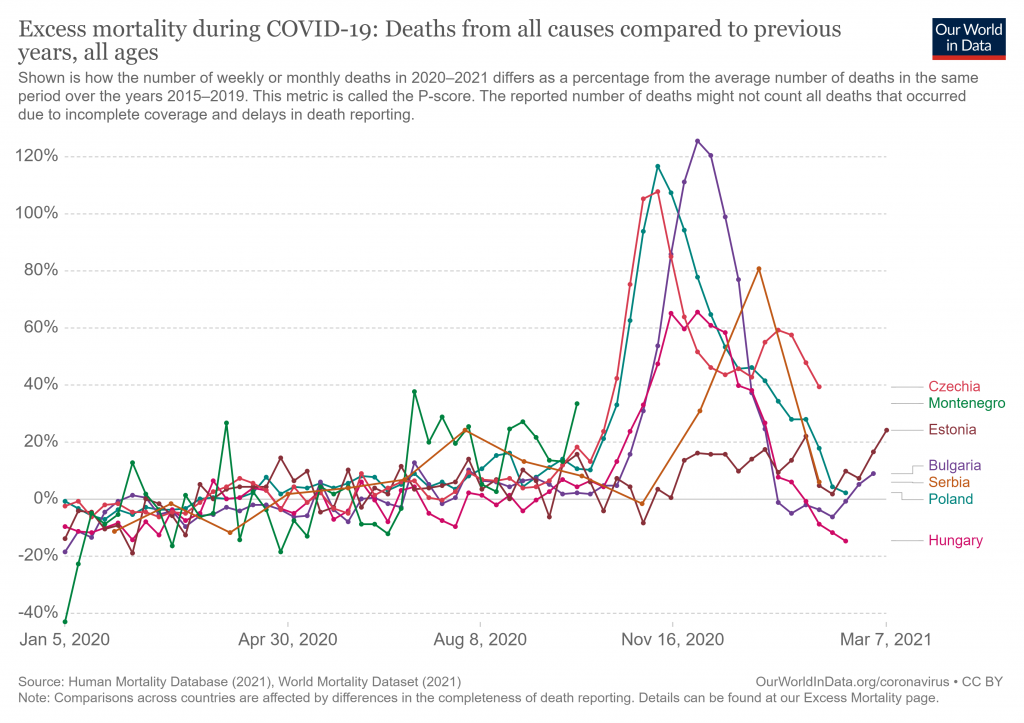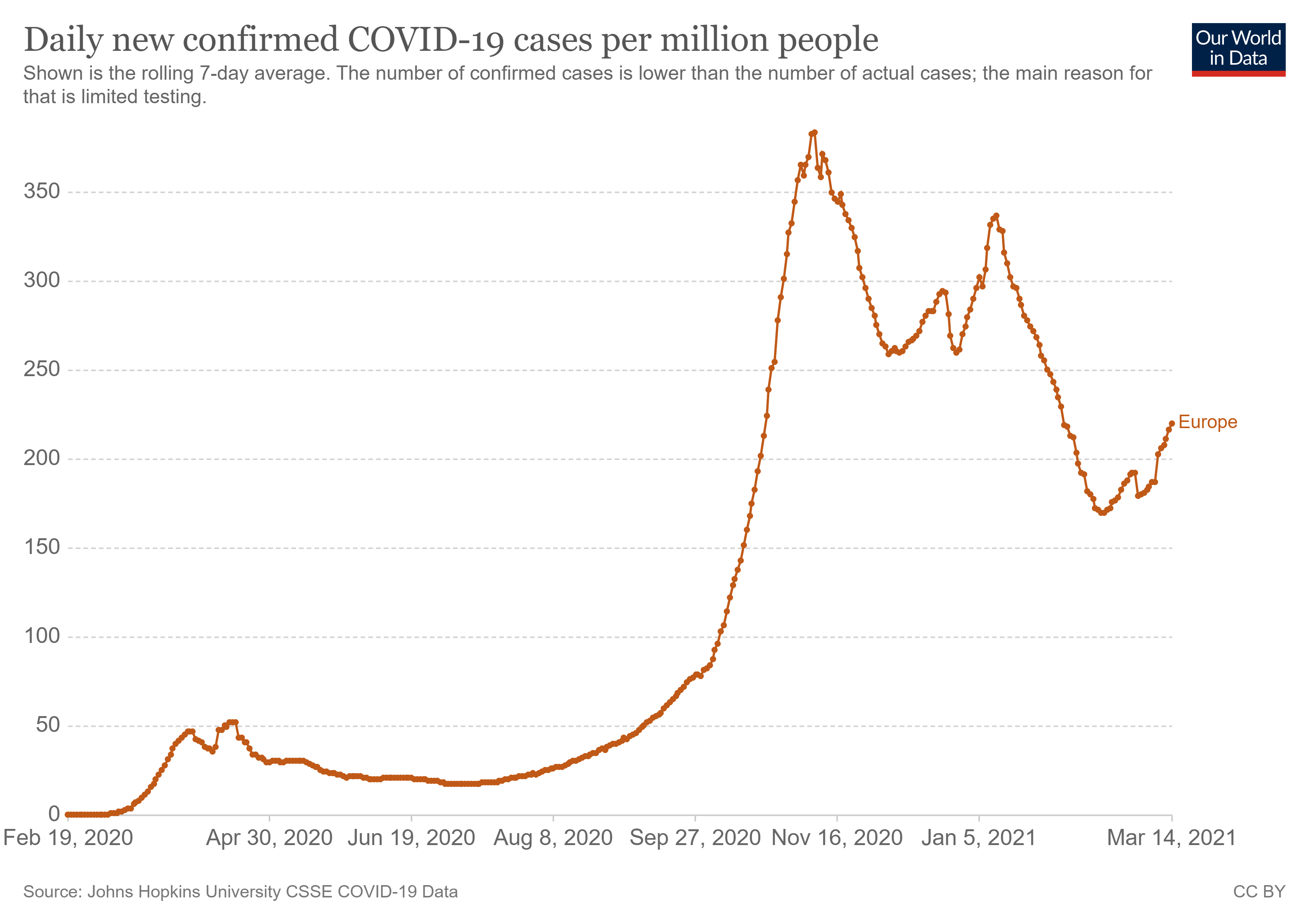Europe shared in the worldwide fall-off in coronavirus infections in January and February but, unlike in the UK, that trend has reversed in the past few weeks and the continent, especially in the east, is beginning to see sharp rises again.
The World Health Organisation’s Emergencies Lead in Europe, Dr Catherine Smallwood, has said she is “particularly worried” about the situation in the Balkans, the Baltic States and Central Europe, where hospitalisation and death rates are now among the highest in the world. The Telegraph has more.
The numbers of new cases per million people are also rising so fast that in some countries – notably Estonia, Bosnia, Hungary and Poland – the graphs tracking the virus point almost vertically upwards.
Experts said that the combination of the spread of the more transmissible UK variant coupled with slow Government reactions, as well as a lack of vaccinations in some countries, could all be contributing to the spiking numbers and Europe’s looming third wave.
The jury is still out on how much more transmissible the UK variant really is. As Dr Clare Craig notes in relation to the UK: “The ONS Survey had it falling before Lockdown 3 was announced. At peak cases ONS reckoned 61% of COVID cases in England were new variant, 33% in Northern Ireland, 22% in Scotland and only 5% in Wales – yet all had a winter wave.” The assumption that “slow Government reactions” make a difference is also not in line with the findings of most studies, which find no association between restrictions and spread.
The WHO said that the situation was “most acute” in areas that had been successful “in controlling the disease [sic] in the first six months of 2020”, suggesting for many of the countries this is more an extended first wave than a second or third.
Nonetheless, it looks like the region may be in for a rough ride over the next few weeks.

Most of these countries are vaccinating fast, but like many places have been frustrated by cases spiking even as vaccines are rolled out.

The situation is particularly concerning because most of these countries have already suffered high excess death tolls this autumn and winter, though notably had not in the spring and summer.

Jennifer Rigby, the Telegraph‘s Global Health Security Correspondent, claims the Czech Republic “has seen cases start to fall after putting in place another strict lockdown”. However, the new lockdown only came into force on March 1st, too late to be responsible for the slowdown which began the previous week. Conversely, Hungary has been under lockdown restrictions since November (curfews, a ban on gatherings, and closure of restaurants, schools and universities) which were tightened further on March 8th but with no sign of a similar impact. Journalists ought really to be under a much stronger obligation to justify the evidence-free claims they make about lockdown efficacy.
Worryingly, the WHO’s European Director Dr Hans Kluge said that it was “too early” to assume vaccine coverage in the region would improve the “epidemiological situation”, though added: “Vaccines work, and will eventually allow a return to a new normal.”
Don’t assume vaccines will work, but actually they do work, and they will allow a return to a “new normal”. Sounds like newspeak to me.










To join in with the discussion please make a donation to The Daily Sceptic.
Profanity and abuse will be removed and may lead to a permanent ban.
“Nonetheless, it looks like the region may be in for a rough ride over the next few weeks.”
due to lockdown
It’s induced mass hysterical hypochondria, driven by sociopathic blinkers (at best). Simple as that.
We all recognize the syndrome whereby an angry spot can, in the minds of the anxious (let alone the terminally neurotic) become a massive tumor in the making. Of course, looking at it it every half hour makes it seem to grow ‘exponentially’.
This situation is that hypochondria writ large – with the cackling evil doctor telling the patient that the spot is terminal, rather than providing reassurance.
The distortion of thinking is immense. The unavoidable conclusion, however you arrive at it, is that government NPIs DON’T WORK – whether you believe in case fables or not, and the clear evidence now is that the effect is negative – simply extending the time that the virus takes to become normally endemic, with all the possible consequences of that on balanced population immunity and the development of the virus.
The hard fact for the fanatics is that seven worse years of mortality have passed in the last quarter century with no paranoid measurement or insane deprivations of liberty – without anyone taking much notice.
If you look at the excess mortality graph, there was no “first wave” in Eastern Europe in spring 2020 – that “first wave” is happening now.
So the answer to the question in the headline is “No.”